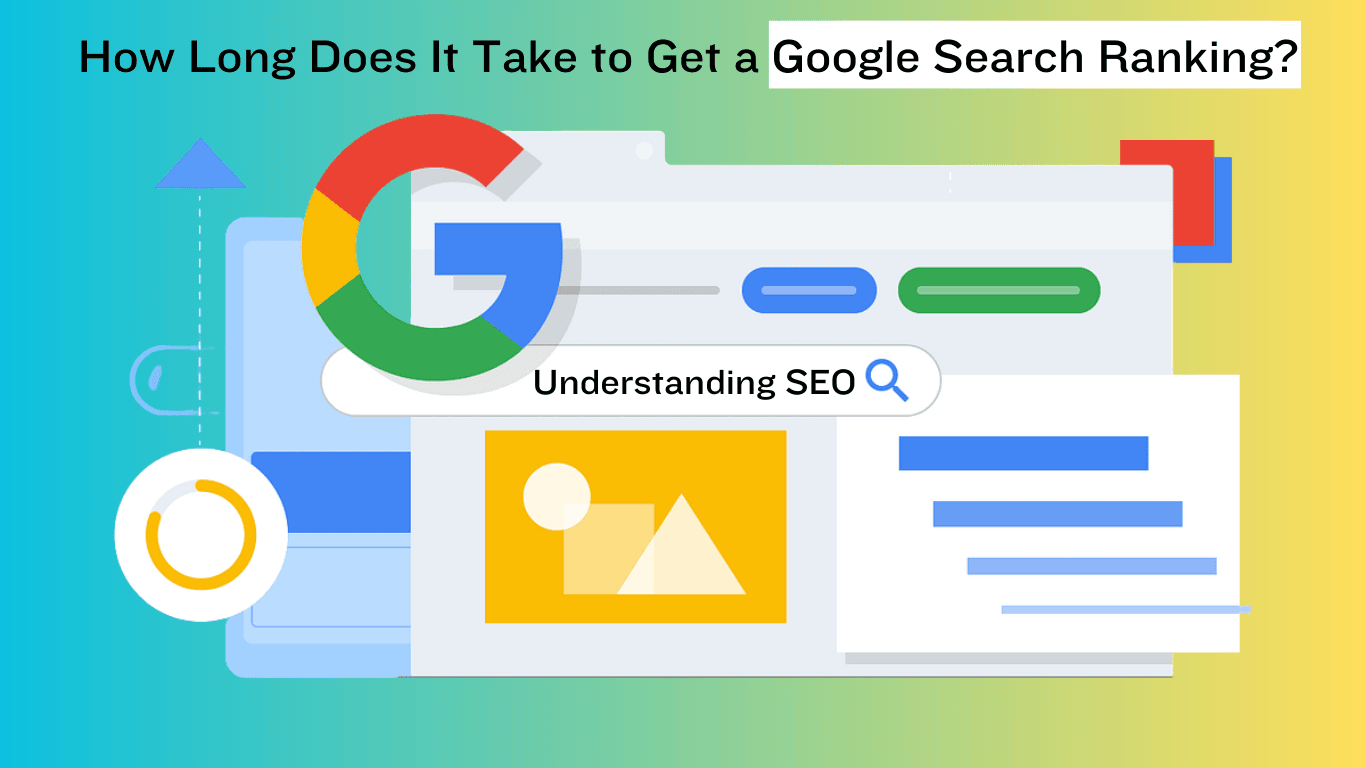No matter what industry you belong to or what type of website you operate, the question of how long it takes to achieve a ranking on Google is a common concern.
Unfortunately, there isn’t a straightforward answer to this question. Many websites make bold claims, such as “For just $99, we’ll get you to number one on Google search engine rankings. No charge if we’re unsuccessful!” While these offers may seem tempting, they often employ improper techniques that can temporarily boost your ranking. However, the results achieved through such methods are typically short-lived, and the consequences can be severe. Using incorrect SEO practices can lead to penalties from Google, and in serious cases, it may result in your website being permanently removed from search results. That sounds alarming, doesn’t it?
The reality is that the process of achieving a top ranking on Google is complex and multifaceted. It involves various factors including content quality, backlinks, technical SEO, and competition among other websites targeting similar keywords.
Understanding these complexities is crucial for anyone looking to improve their online presence and navigate the challenges of SEO effectively.
Keyword ranking algorithm
Even within the same industry, each company is unique. As more businesses emerge, Google’s algorithm becomes increasingly sophisticated, allowing it to differentiate between various companies and their relevance to search queries. Google utilizes historical data to develop a set of rules and conditions that are automatically calculated by computer programs.
One of the key components of this process is Google RankBrain, which is updated nearly every second. This real-time algorithm analyzes how relevant a company is to specific search terms and scores different businesses accordingly, from high to low.
The ultimate goal is to align your website's data with Google's algorithm to achieve a top ranking. So, let’s discuss how you can effectively do that.
How Google Finds Your Website
First, let me explain how Google discovers websites and determines their rankings. Google employs automated programs called robots or spiders that crawl millions of websites and their pages daily. These crawlers scan your website, reading its content and following internal links to gradually discover all pages on your site. They collect data and add it to Google's index of websites worldwide. Google's automated ranking systems analyze many factors and signals related to these web pages and other content in their Search index.
Because these robots are so active, it's crucial to ensure that your website's information is as easily searchable as possible. Your website content should include all relevant keywords and terms related to your business to increase your chances of occupying the top position in search results. When users search on Google, they're actually searching an index of all the information that Google has found on the web. Google's AI understands the meaning behind each query, processing them as concepts rather than individual words.
How pages are ranked

Great! Now that you understand how Google discovers websites, let's delve into how they rank them in search engines. Google's algorithm is constantly evolving, and while the specifics are closely guarded secrets, there are several established criteria that can improve your chances of gaining an edge in Google's search results.
Understanding Google's Ranking Process
Google uses a complex formula that takes into account over 200 ranking factors. These factors are assessed by automated systems, which analyze various elements of your website and its content. While it may seem overwhelming, focusing on a few key areas can significantly enhance your site's visibility.
Here are some critical factors to consider for improving your rankings:
- Quality Content: Producing high-quality, informative, and relevant content is paramount. Google prioritizes content that satisfies user intent and provides value.
- Backlinks: Quality backlinks from reputable websites act as votes of confidence for your site. The more high-quality backlinks you have, the better your chances of ranking higher.
- Technical SEO: Ensure your website is technically sound. Factors like site speed, mobile-friendliness, and crawlability are essential for effective indexing by search engines.
- Keyword Optimization: Strategically using relevant keywords throughout your content helps search engines understand what your website is about.
- User Experience (UX): A positive user experience is crucial. Google favors websites that are easy to navigate and provide a good overall experience for visitors.
- Schema Markup: Implementing structured data helps search engines better understand your content and can enhance your visibility in search results.
- Social Signals: Engagement on social media platforms can indirectly influence rankings by driving traffic and increasing brand awareness.
- Brand Signals: A strong online presence and positive brand perception contribute to better rankings.
By focusing on these factors and continually optimizing your website, you can improve your chances of achieving a higher ranking in Google's search results. Remember, SEO is an ongoing process that requires regular monitoring and adjustments to stay aligned with Google's evolving algorithms.
Search Engine Standards
Search engine optimization (SEO) is a critical component of generating revenue online. It ensures that your website is not only visible to Google's crawling robots but also contains the appropriate search keywords, titles, and images.
For optimal results, it is vital that these keywords appear throughout your webpage at the right frequency—enough to enhance your SEO score without appearing spammy. Search engines continuously monitor your website's performance to ensure that your web pages remain visible and relevant to users.
By implementing effective SEO strategies, you can significantly improve your chances of ranking higher in search results, ultimately attracting more visitors and potential customers to your site.
Domain Age and Its Impact on Ranking Time

That's right, Google considers the age of a website when ranking sites, but not exactly as you might think. Google doesn't directly use domain age as a ranking signal. However, they do consider how long a site has been online and actively providing content.
Google may view websites less than six months old as new. The age calculation is based on how long the site has been indexed and active, not necessarily how long the domain has been registered. For instance, even if you've owned a domain for ten years, if you only started publishing content last week, Google may treat your website as being only one week old.
While Google doesn't explicitly favor older domains simply because of their age, there's an indirect impact. Older domains often have more time to build trust signals, accumulate backlinks, and establish authority. These factors can positively influence SEO performance.
It's a common myth that new domains face a "Google Sandbox Effect," where they are suppressed in rankings for 6-12 months. While some SEO professionals observe this effect, Google focuses more on content relevance, quality, user experience, and backlink profile authority.
So, while the age of your domain itself isn't a direct ranking factor, the experience, authority, and trust gained by older websites can absolutely help them rank higher. Focus on creating high-quality content, building a strong backlink profile, and optimizing user experience to improve your chances of ranking well.
Keyword Competition
Keywords are the words and phrases that users frequently enter into search engines when looking for information. The higher the search volume for these terms, the greater the competition Google perceives. However, newer websites can leverage SEO techniques to focus on less competitive keywords. These are terms that are searched less often, making it easier to rank for them. Utilizing effective SEO keyword research tools can help identify these opportunities.
Website Optimization Tips: The Importance of Quality Content
The quality of your content is paramount in SEO. Google's crawling robots are constantly verifying that a website's content remains fresh and relevant. Here are some key factors that Google considers when assessing the quality of a website:
1. Length of post
- Timeliness of content
- Originality of content
- Publish original content, not repetitive junk
- High-quality external connections
- How often new content is added
Post length is important
Google does not encourage webmasters to post casually, although many have attempted this approach over the years without success. To combat spammy websites, one of the methods employed by search engines is measuring the length of each post on a website. According to industry experts like Neil Patel and Quicksprout, the average top ten web pages contain more than 200 words per article.
Generally speaking, longer content tends to be viewed as more credible by search engines. Therefore, it's advisable to keep your post content at least 300 words to ensure a good ranking; however, articles ranging from 1,000 to 3,000 words often perform even better. Longer articles signal to Google that your site covers more comprehensive and practical topics.
Recent studies indicate that the optimal blog post length for SEO is between 2,250 and 2,500 words. This length not only helps in achieving higher rankings but also increases the likelihood of generating quality backlinks and shares. In fact, longer posts are more likely to be perceived as valuable resources by both users and search engines.
While shorter content may still have its place—particularly for quick answers or specific inquiries—aiming for substantial word counts in your blog posts can significantly enhance your site's performance in search results. Quality should always take precedence over quantity, but focusing on longer, well-researched articles can provide a competitive edge in today's SEO landscape.
Timeliness of content
It is important to note that, in addition to the relevance of the article, the timing of publication plays a significant role in SEO performance.
If the articles you publish are related to current trending topics, your chances of achieving a higher ranking increase. A smart approach is to create content that remains timely and relevant. This means not only focusing on evergreen topics but also incorporating articles that address current events or popular discussions within your industry.
Even with evergreen content, it’s essential to regularly update your articles with new information or insights to maintain your search ranking. Adding fresh elements, such as recent statistics, updated examples, or new perspectives, can help keep your content engaging and relevant.
By balancing timely topics with evergreen content and ensuring regular updates, you can enhance your website's visibility and improve its overall performance in search engine results.
Publish original content,not repetitive Material
Search engines prioritize original content and penalize plagiarism. Google's crawling robots systematically scan and index websites, comparing their content against others on the web. Therefore, avoid directly copying content from other websites. If you need to quote external content, it's essential to modify both the title and body to ensure originality.
To verify content authenticity, consider these steps:
Exact Phrase Search: Put sentences from your content in quotation marks and search on Google. If identical content appears elsewhere, it's not original.
Reverse Image Search: Use Google Reverse Image Search to ensure images aren't already used elsewhere.
Specialized Tools: Use tools with semantic analysis to examine the meaning and context of a text to determine originality. Originality. AI's fact-checking tool leverages AI and machine learning to verify content authenticity.
Linguistic Methods: Use stylometry to assess writing style for authorship and originality. Readability checkers can determine how understandable content is and if it's similar to other content.
Although AI can generate content quickly, search engines are evolving to detect AI-produced material. Originality.AI can specifically detect content by ChatGPT-3 with an accuracy of 94%. Some tools analyze text to determine if it was written by a human or AI with 85% to 95% accuracy.
Focus on creating authentic and engaging content to provide value to your audience. Being vigilant about originality is a smart business move.
Role of High-quality external connections

On the other hand, collaborating with high-quality websites can significantly enhance your ranking in Google search results by establishing backlinks to your site. The most effective way to acquire these high-quality links is by publishing useful and engaging content. Only content that provides real value is likely to be reposted and shared by others.
One of the best strategies is to hire an SEO expert or utilize an SEO tool to assist you in publishing and promoting your content effectively. This approach can help you identify the right topics, optimize your articles for search engines, and ensure that your content reaches a wider audience.
Why Backlinks Matter
Backlinks from reputable sites are crucial for improving your search engine rankings. They act as endorsements, signaling to Google that your content is trustworthy and valuable. High-quality backlinks not only boost your site's credibility but also drive organic traffic, helping search engines discover new pages on your website more efficiently.
To maximize the effectiveness of your backlink strategy, focus on creating high-quality content that others want to link to. Engaging articles, comprehensive guides, and insightful resources are more likely to attract attention and earn backlinks from authoritative sources.
In conclusion, investing in quality content and strategic collaborations with reputable websites can significantly improve your SEO performance. By leveraging backlinks effectively, you can enhance your website's visibility and authority in search engine results.
Frequency of New Content Publication
Another important factor that Google considers is how frequently you publish new content. Google's crawling robots are continuously active, and keeping them well-fed with fresh content is essential for maintaining visibility in search results.
To achieve this, aim to publish a steady stream of new articles. If you can publish at least two to three times a week, your pages will be indexed by Google quickly, often in almost no time at all. Regular updates signal to Google that your site is active and relevant, which can positively impact your rankings.
The Importance of Fresh Content
Publishing fresh content not only helps with indexing but also enhances user engagement. Google favors websites that consistently provide updated information, especially on topics that evolve rapidly. By regularly adding new content or updating existing articles with the latest information, you can improve your site's authority and relevance in search results.
Incorporating timely topics alongside evergreen content ensures that your audience finds value in what you offer. This strategy not only keeps your website dynamic but also encourages repeat visits from users seeking the latest insights.
By prioritizing a consistent publishing schedule and focusing on quality, you can effectively enhance your SEO efforts and improve your website's performance in search engine rankings.
How long does it take to see results after doing SEO?

Now that you understand how SEO functions on Google, let’s discuss how long it takes to reach the top of search engine results.
As previously mentioned, improving the quality of your website is essential for gaining Google's trust and enhancing your site's reputation. This process takes time. According to research by Ahrefs, the average age of a top-ranked website is over 900 days. However, if you implement proper SEO techniques and maintain high content quality, your website can achieve a top ranking within 90 to 180 days.
While the timeline can vary significantly based on several factors—including content quality, backlink profile, and competition—consistent effort in optimizing your site can lead to faster results. It's crucial to remember that SEO is a long-term strategy; patience and persistence are key to achieving success in search rankings.
Is three to six months too long?
Yes, three to six months may seem like a long time, but don’t let that discourage you from pursuing effective SEO strategies. While it might be tempting to use inappropriate ranking methods for quick results, achieving a top position in search results through such tactics can lead to severe consequences. Your website may reach the top quickly, but this approach often results in penalties, ultimately causing your site to disappear from search results altogether.
Success in SEO requires dedication and hard work. For a webpage aiming for the top rank, three to six months is relatively short in the realm of search engine optimization. If you remain committed during this period and focus on implementing best practices, you will likely see the fruits of your labor after six months.
Patience and consistency are essential in SEO. By prioritizing quality content, proper optimization, and ethical practices, you can build a sustainable online presence that stands the test of time. Remember, the journey may be lengthy, but the rewards of genuine effort are well worth it!
What’s next?
Does the introduction above inspire you to utilize SEO techniques to optimize your website? Are you eager for your site to generate hundreds, thousands, or even tens of thousands of dollars each month? If so, now is the time to take action!
Watch our tutorial and embark on your journey toward online earnings. Start putting in the effort today, and you could begin enjoying the results in just six months! With dedication and the right strategies, your website can thrive and achieve the financial success you've always dreamed of. Don’t wait—begin your SEO journey now!
Statement: All articles on this website, unless otherwise specified or marked, are originally published by this site. Any individual or organization is strictly prohibited from copying, misappropriating, collecting, or publishing the content of this site on any website, book, or other media platform without prior consent from this site.
If you believe that the content on this website infringes upon your legitimate rights and interests as the original author, please contact us for resolution. We take such matters seriously and are committed to addressing any concerns promptly.



